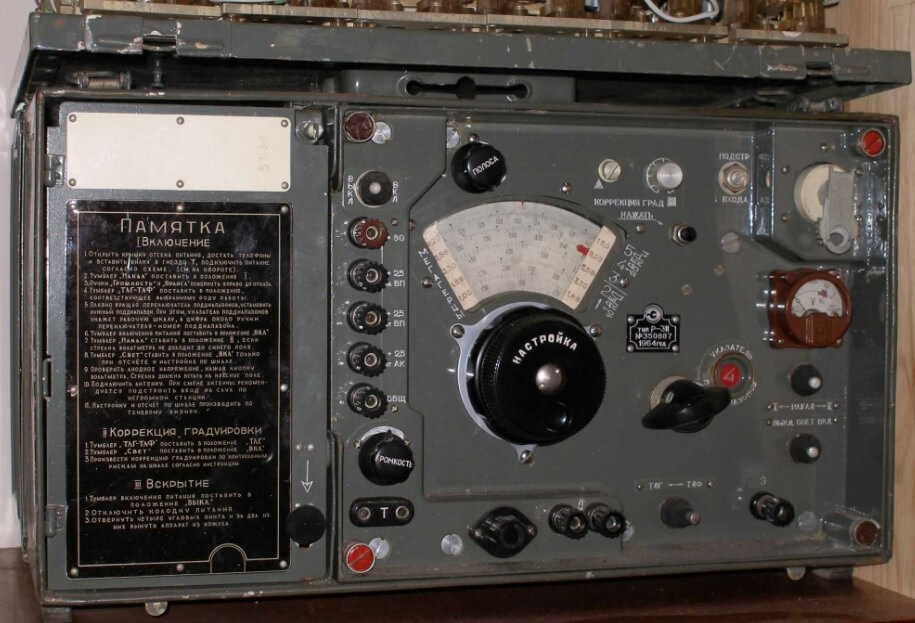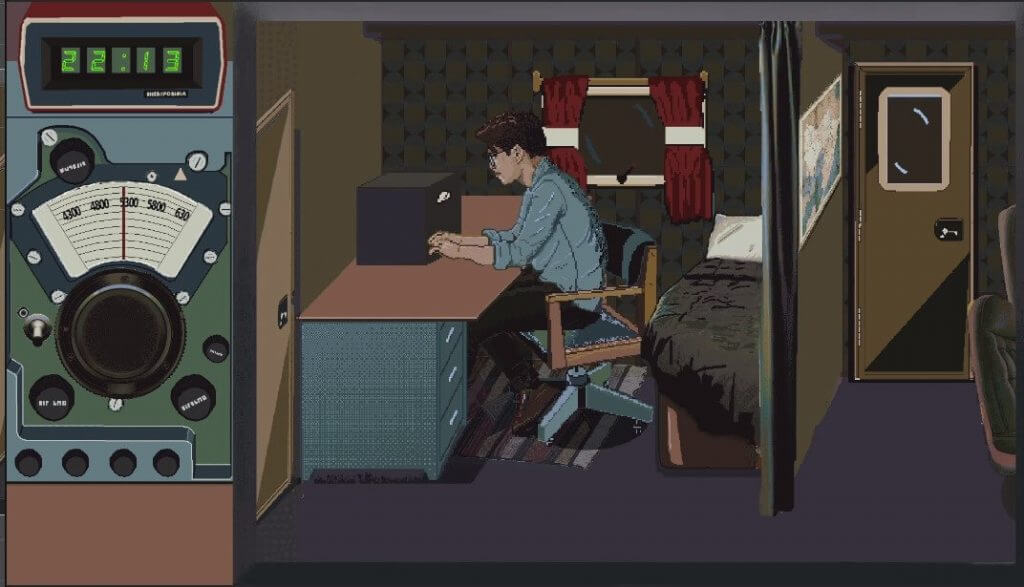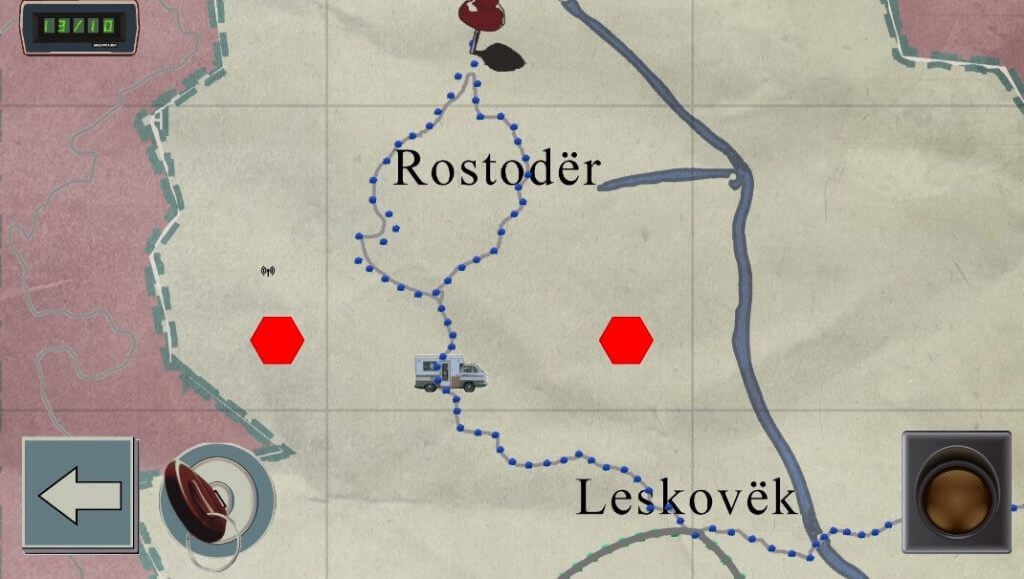Hi guys, I bring you an update on the progress on the development of “Cavefish”. I will avoid most “spoiler alert” topics and stick to development progress.
As a reference, you might want to check out Cavefish’s Dev Diary 0 first. But to put it simply, the idea behind Cavefish is to make a game that tells a story. It’s a spy story, and I want to focus on the idea of listening to private conversations over the radio. A couple of nations are stuck in a fantasy cold-war-like Era. The player acts as a listener to all radio frequencies and will tap into the private military or diplomatic communications. His Intelligence Agency will demand information from several sources and the player must be able to intercept them. The player will also be traveling in a van across a large map to reach certain hotspots where communication is happening.
These last couple of weeks I’ve been hard at work and some progress has been made, but I’ve also encountered a few serious setbacks as well.

I had to study quite a lot more about radios than I at first anticipated. At first, I thought the learning curve would be similar to learning how to fly a plane in a simulator (which I enjoy doing from time to time). I soon realized that there are so many nuances and scientific details (and even math) that, well, things weren’t so simple as I expected. It is still a simple enough concept, worth exploring for a game, but some concessions in realism have to be made in order to have a captivating (and easy enough to learn) gameplay experience. In my search, I was lucky enough to find people who helped me a whole LOT (thank you YMK, ZZZ, Radiotehnika!). Their input was absolutely invaluable and I’ll be sure to add their names to the game’s final credits. They even took the time to help translate old soviet radio instructions for me! Thank you, guys!
I highly suggest visiting WebSDR and KiwiSDR. Exploring all these scientific concepts and history with them was so much fun. I’ve learned so much and there are so many new ideas brewing from this research.
I started fleshing out all the game flow and mechanics, UI, ambiance, etc.: I’m going for a low saturation pixelated aesthetic. The reason behind this choice is that it truly gives character to what happens in an eastern setting in the ’50s-’60s. It also allows me to easily play with the light and color over time. I was hoping to make the game react to the character’s mood in a dramatic way – for instance making the game more somber and sad when the player loses touch with his family, or vibrant when the player is chasing an agent. The UI will be composed of several sections that move in and out of the main camera as an animated comic (the screen will be composed by sections that show different objects). These go in and out of view as they’re requested by the player’s actions.
I’m still developing my art skills (especially with pixel-styled art which is really new to me) and I can’t afford to pay for an artist right now, but I hope to be able to deliver a good enough demo that might help me get funded to hire someone to help me out. If you’re a talented pixel artist and would like to freely support me on this project please let me know!

Gameflow: I would like to give the player a lot of freedom to do what he pleases, without compromising the multiple story arcs. He will be able to have an impact on the world around him, but he will just be one piece in a major chessboard played among nations. The game will still play out even if he decides to ignore his job duties, but things might end more favorably towards him, his family, and his faction if he decides to intervene. Time won’t stop. The world won’t wait for the player to act. In fact, certain unexpected setbacks (like a police inspection, a border blockade, or a flat tire) might prevent the player from reaching his destination or listening to a critical transmission on time.
To this end, I’ve developed a calendar for the first 15 days of the game (aiming for ~60 in total). During this period, nations trade, negotiate, declare wars and invade countries, while civil and family drama plays out as well. This calendar isn’t finished or polished yet, but it helps to lay down the first major story arcs that trigger the rest of the narrative. You won’t see this in the final product as it will all play out in the background, but the idea here is that intercepting certain transmissions will allow some nations to get a negotiation/military advantage. Transmissions will still occur whether the player listens to them or not.
Programming: I’ve developed a simple first loading screen, the interior of the RV, the Radio On/Off button, the frequency knob, and the mechanics for moving the RV on the world map. Unfortunately, I came across a few VERY nasty bugs that consumed a couple of days’ worth of development. I also had to ditch a programmatic approach that cost me 3 days to implement. Doing it all over again cost me 4 more days and I haven’t finished it. I’ve got a slower development approach now, but one that will simplify a lot of things and make the game more stable overall. It also improved FPS performance by a factor of 5.
Overall, progress was slow but steady this past week. Slower than I wanted it to be – but I always think “steady wins the race” – so I look forward to the next couple of weeks.

My radio-expert friend YMK asked for an easier means of communication regarding the project. I need to add a contact form to this website and I still wasn’t able to do so – but in the meantime, I’ve created a Discord server for keeping in touch with this project’s followers. You’re also free to PM me directly via my other website, PopcornGamer, Twitter or even Twitch.
Thinking about the advantage of obtaining information, it reminded me of an exciting yet mostly ignored piece of history that I learned about a couple of years ago.
I would highly recommend learning more about how Stalin used bugs and spies in the gardens to listen in on president Roosevelt and prime minister Churchill, affecting the Yalta conference negotiations after WW2. Exciting stuff, that shows how knowledge is power in times of war. Meanwhile, I’ve been watching The Queen’s Gambit – an awesome TV show on chess during the cold war.
I’ll keep you posted!
Rui
